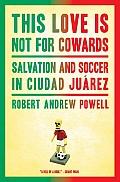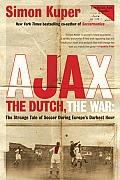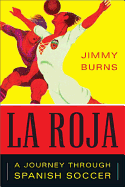Baseball has been the subject of many great books. Although some are more about race, ethnic assimilation or the American Dream, most are fundamentally about the game itself--players, teams, strategies, stats and stadiums. The promise of spring, the smell of the grass, the boys of summer.
Soccer is the world's sport, and perhaps because the world is a bit more complicated, books about soccer can be much darker.
 Juárez is the most murderous city in the world, a strategically placed entry point into the United States (across the Rio Grande from El Paso, Tex.), plagued by warring drug cartels and corrupt police and officials. Some 10 people are murdered daily in restaurants, in convenience stores, on the street. In This Love Is Not for Cowards: Salvation and Soccer in Ciudad Juárez (Bloomsbury USA), American journalist Robert Andrew Powell follows the Indios of Ciudad Juárez futbol club during their lackluster 2009 season as they fall from the Mexican premier league to relegation. The team's supporters, El Kartel, follow them loyally and with passion. The Indios provide hope and a thin possibility of redemption for the citizens of Juárez. In this very dangerous and frightening city, there's the belief that people can be bigger than the violence and brutality, and can be bound together by a sport.
Juárez is the most murderous city in the world, a strategically placed entry point into the United States (across the Rio Grande from El Paso, Tex.), plagued by warring drug cartels and corrupt police and officials. Some 10 people are murdered daily in restaurants, in convenience stores, on the street. In This Love Is Not for Cowards: Salvation and Soccer in Ciudad Juárez (Bloomsbury USA), American journalist Robert Andrew Powell follows the Indios of Ciudad Juárez futbol club during their lackluster 2009 season as they fall from the Mexican premier league to relegation. The team's supporters, El Kartel, follow them loyally and with passion. The Indios provide hope and a thin possibility of redemption for the citizens of Juárez. In this very dangerous and frightening city, there's the belief that people can be bigger than the violence and brutality, and can be bound together by a sport.
 During their occupation of the Netherlands in World War II, the Nazis insisted that the country's soccer clubs expel their Jewish players. In Ajax, the Dutch, the War (Nation Books), Simon Kuper writes that the Dutch, often touted as heroes of the resistance, were perhaps too easily persuaded to accede to the Nazis' directive. Some Jewish players ended up in death camps. Some Ajax club members hid Jews during the war, while others were not nearly as altruistic. Some Dutch resisted, some collaborated. It was very gray in the land of orange.
During their occupation of the Netherlands in World War II, the Nazis insisted that the country's soccer clubs expel their Jewish players. In Ajax, the Dutch, the War (Nation Books), Simon Kuper writes that the Dutch, often touted as heroes of the resistance, were perhaps too easily persuaded to accede to the Nazis' directive. Some Jewish players ended up in death camps. Some Ajax club members hid Jews during the war, while others were not nearly as altruistic. Some Dutch resisted, some collaborated. It was very gray in the land of orange.
 Saying that La Roja, the Spanish national team, is currently the best soccer team in the world is just stating fact. How they got there, from a handful of ex-pat Brits teaching the game to a community of Basques, is the stuff of La Roja: A Journey Through Spanish Soccer by Jimmy Burns (Nation Books). The team's history is loaded with politics. When Franco took power, he grabbed control of all football institutions, using them as propaganda tools to unite Spain. Those who supported his regime were rewarded, and those who didn't were marginalized. Franco embraced "La Furia," an aggressive style of play that reflected his concepts of conquest and militarism. The pitch became a battlefield, and the players soldiers. How Spain rebooted its team under a more intricate style of play after Franco's death and how it reexamined its identity and in turn was reshaped by the team La Roja is the heart of this fine book. --George Carroll, independent publishers' representative (and Shelf soccer editor)
Saying that La Roja, the Spanish national team, is currently the best soccer team in the world is just stating fact. How they got there, from a handful of ex-pat Brits teaching the game to a community of Basques, is the stuff of La Roja: A Journey Through Spanish Soccer by Jimmy Burns (Nation Books). The team's history is loaded with politics. When Franco took power, he grabbed control of all football institutions, using them as propaganda tools to unite Spain. Those who supported his regime were rewarded, and those who didn't were marginalized. Franco embraced "La Furia," an aggressive style of play that reflected his concepts of conquest and militarism. The pitch became a battlefield, and the players soldiers. How Spain rebooted its team under a more intricate style of play after Franco's death and how it reexamined its identity and in turn was reshaped by the team La Roja is the heart of this fine book. --George Carroll, independent publishers' representative (and Shelf soccer editor)

